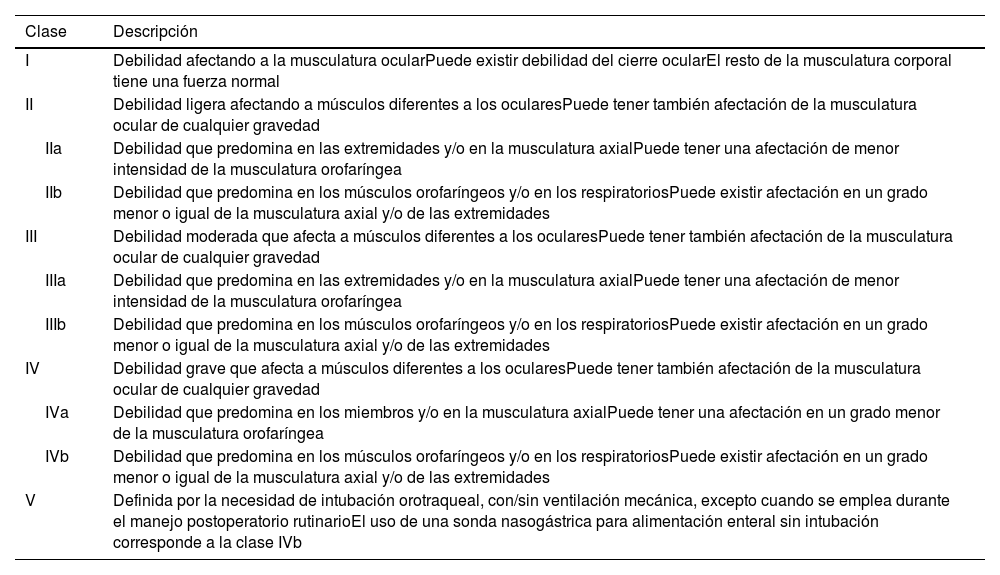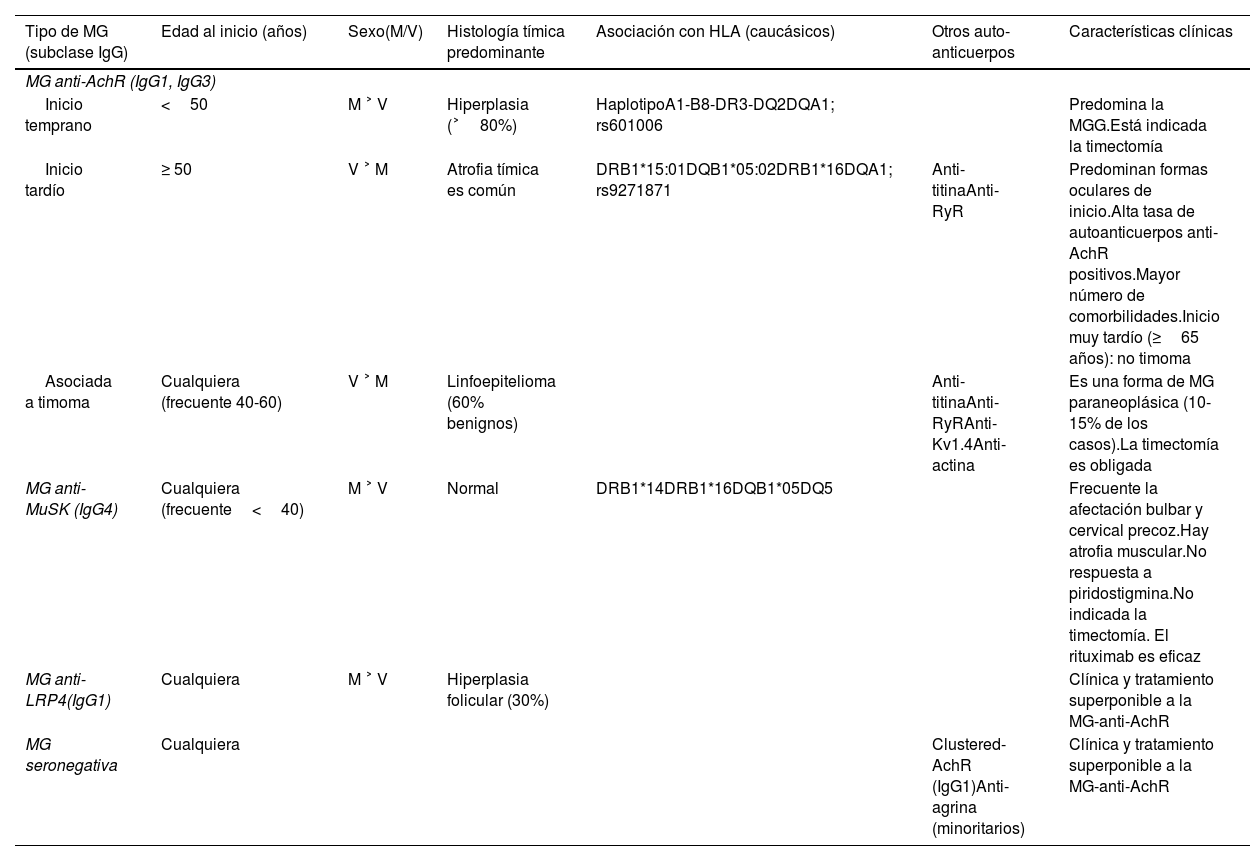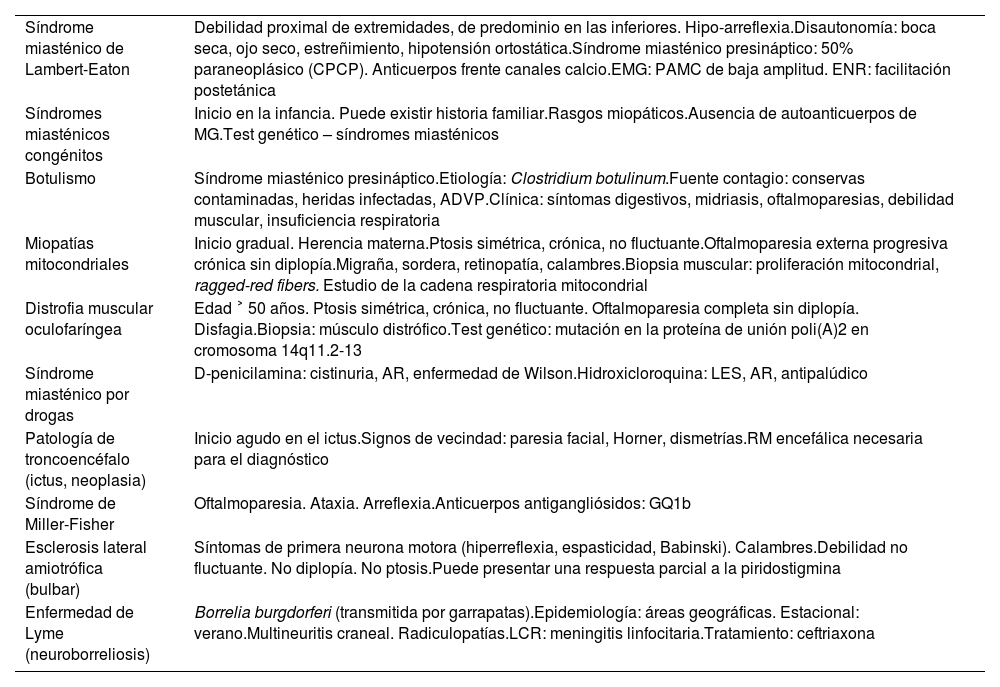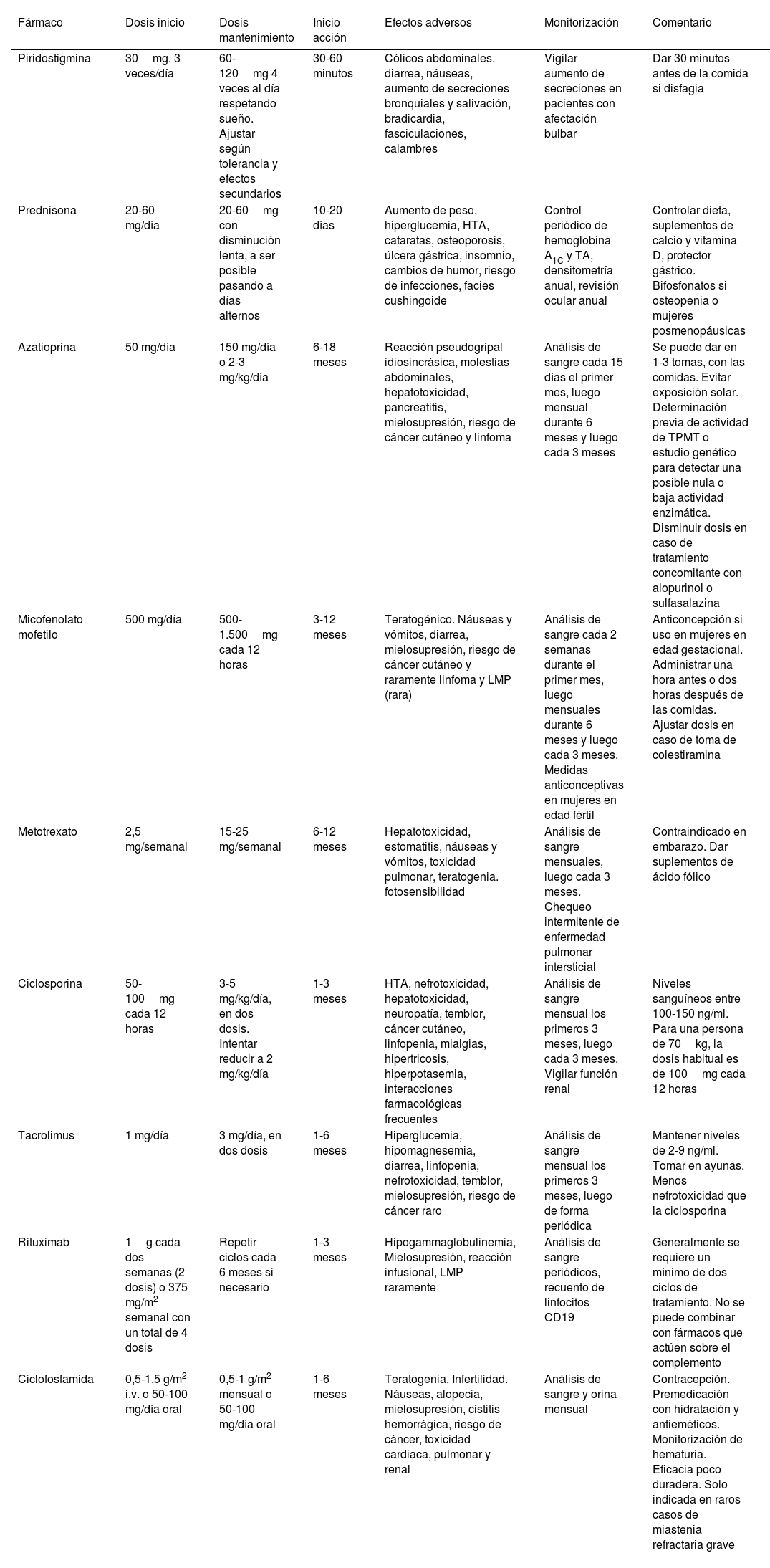La miastenia gravis es una enfermedad autoinmune causada por la presencia de anticuerpos específicos dirigidos a diferentes componentes postsinápticos de la unión neuromuscular, y clínicamente se caracteriza por la presencia de debilidad muscular fatigable. En la etiopatogenia juega un papel central el timo, y los autoanticuerpos patogénicos más frecuentemente detectados están dirigidos al receptor de la acetilcolina. El incremento en el conocimiento de los componentes inmunológicos de la unión neuromuscular en las últimas dos décadas ha sido fundamental para identificar nuevos anticuerpos patogénicos, reducir el porcentaje de pacientes con miastenia seronegativa y proponer una clasificación de los pacientes en subgrupos con interés clínico-terapéutico. Además, en los últimos años hemos asistido al desarrollo de nuevos fármacos destinados al tratamiento de los pacientes con miastenia que muestran refractariedad al tratamiento inmunosupresor convencional.
Myasthenia gravis is an autoimmune disease caused by the presence of specific antibodies targeting different postsynaptic components of the neuromuscular junction, and is clinically characterized by the presence of fatigueable muscle weakness. In the etiopathogenesis plays a central role the thymus and the most frequently detected pathogenic autoantibodies are targeted to the acetylcholine receptor. The increase in the knowledge of the immunological components of the neuromuscular junction in the last two decades has been fundamental to identify new pathogenic antibodies, reduce the percentage of patients with seronegative myasthenia, and propose a classification of patients into subgroups with clinical-therapeutic interest. In addition, in recent years, new drugs have been developed for the treatment of patients with myasthenia gravis that are refractory to conventional immunosuppressive treatment.










